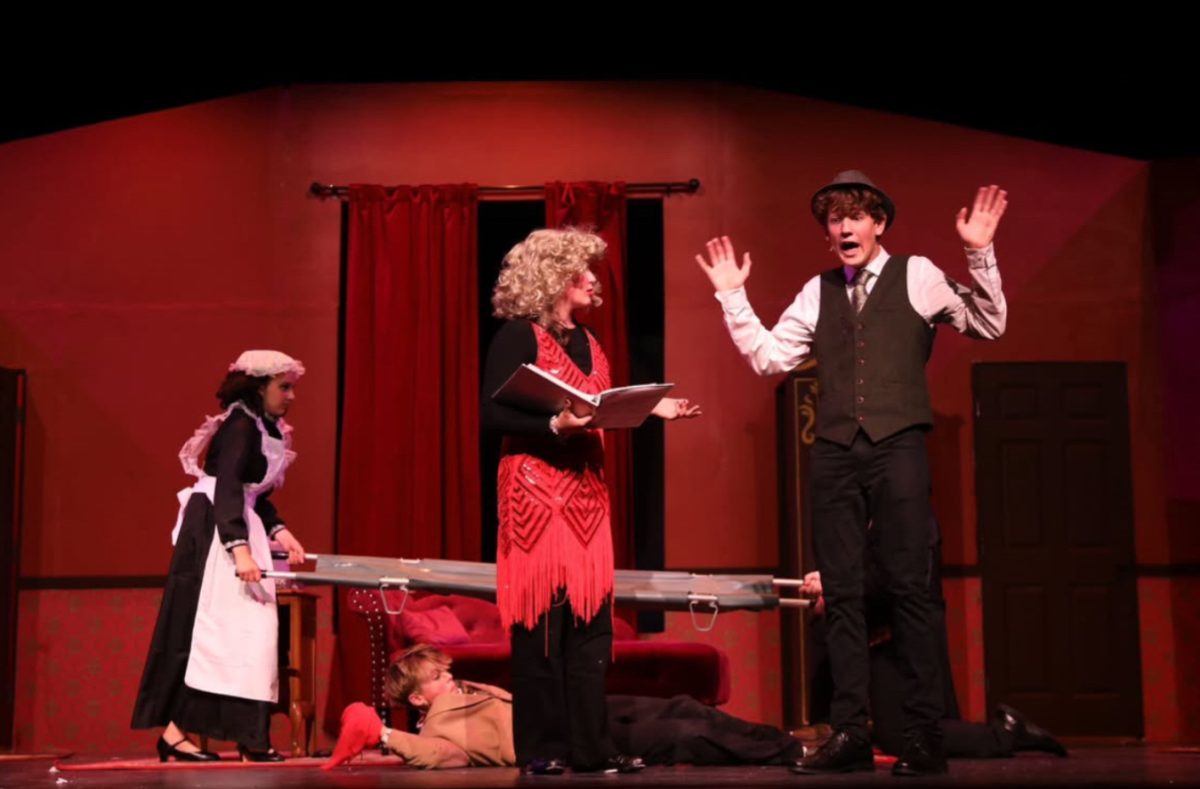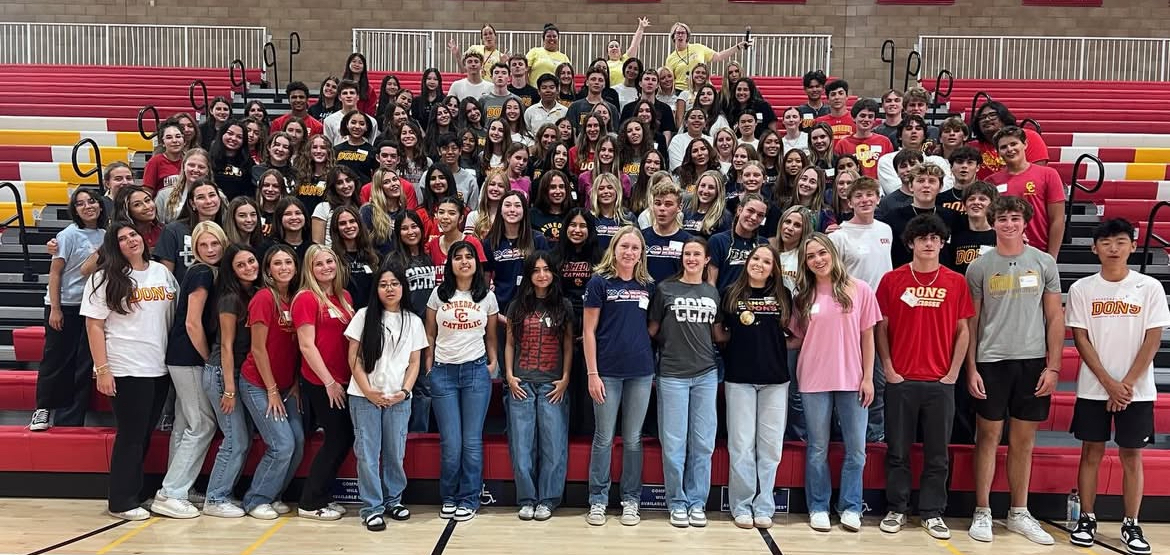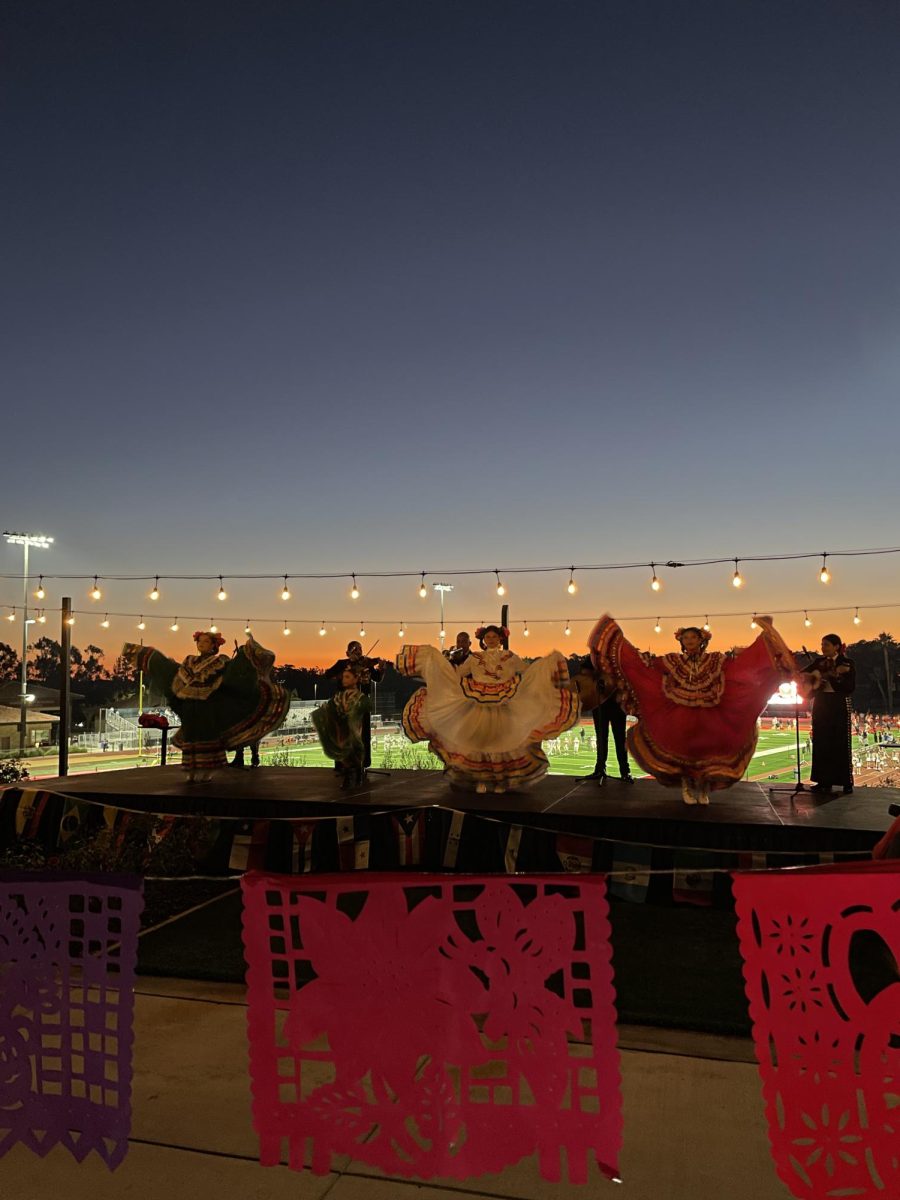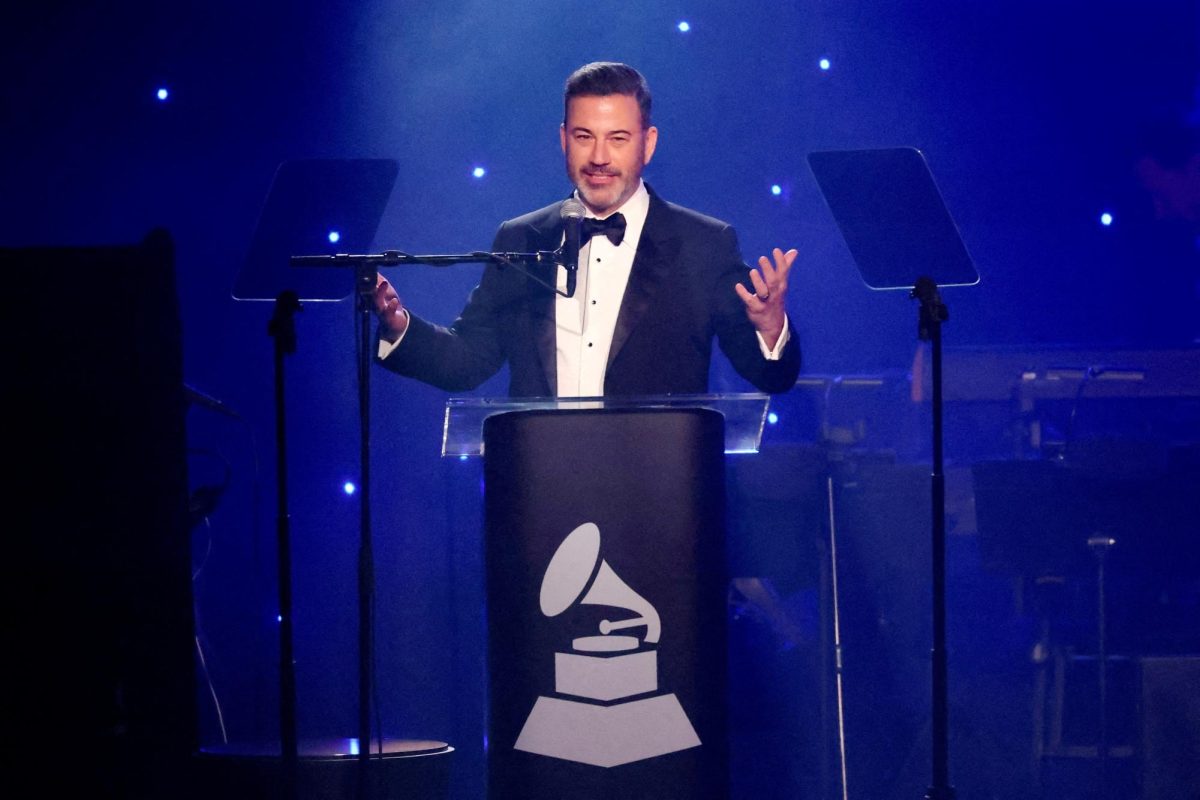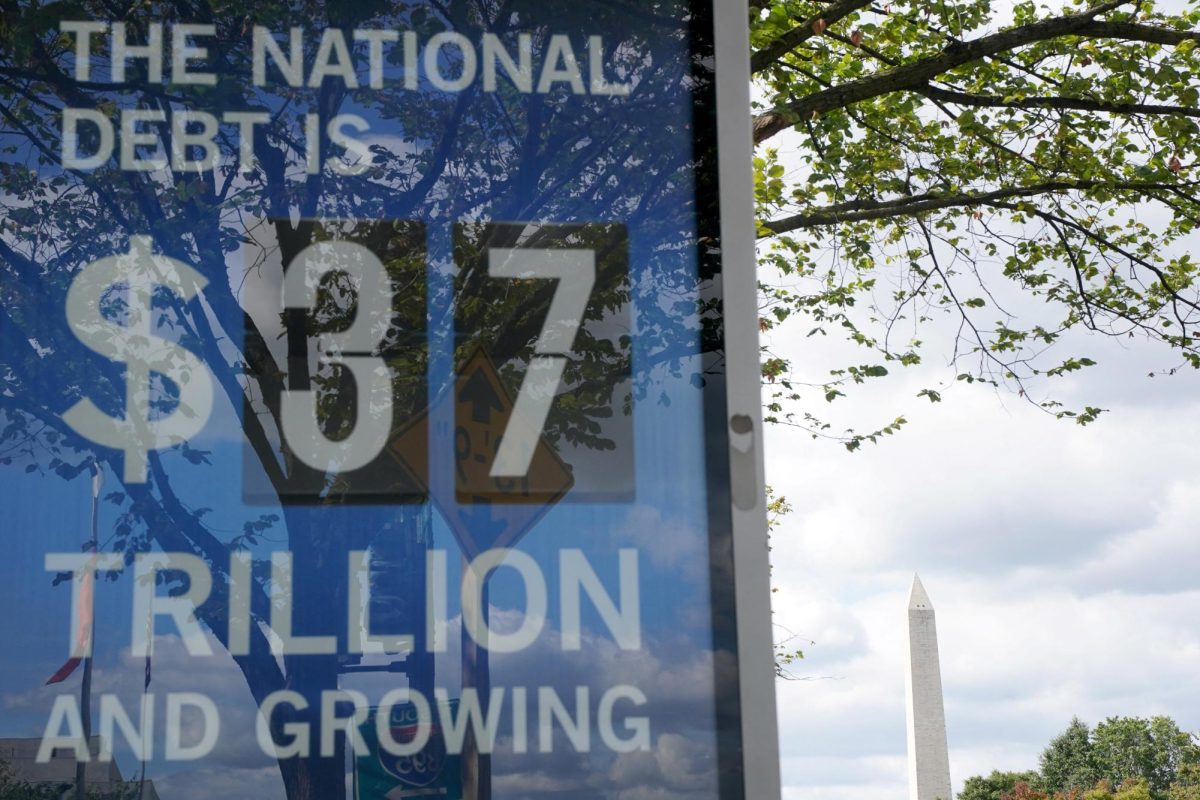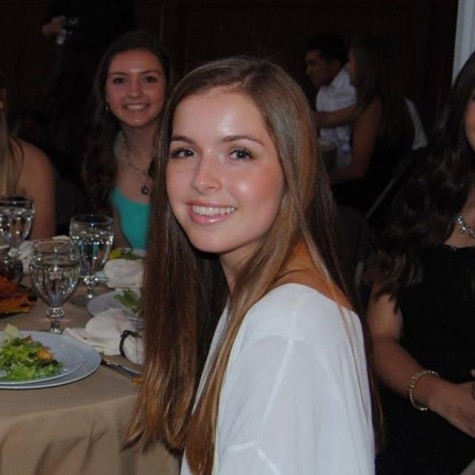Cathedral community weighs in on Charlie Hebdo attack
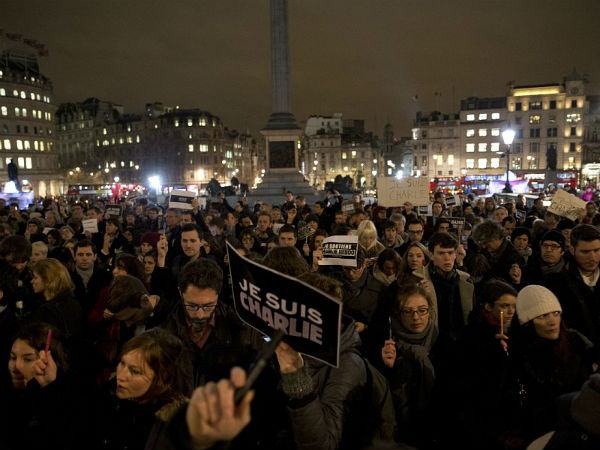
January 20, 2015
On Wednesday, January 7 at 10:30 a.m. in Paris, France, two masked gunman stormed the headquarters of French satirical weekly magazine, Charlie Hebdo. They killed twelve political cartoonists and employees and injured eleven in what is the biggest terrorist attack France has seen in decades. The attack was perpetrated by two men claiming to act on behalf of the religious extremist terrorist group, Al-Qaeda, in retaliation for caricatures published by the weekly magazine depicting the prophet Muhammad. Some Muslims consider depiction of the prophet Muhammad, especially in satirical light, to be an act of blasphemy punishable by death.
The murder of the satirical cartoonists in Paris begs the question: should there be a limit to freedom of speech? Many believe there should be, but when is there a limit? French teacher, Mrs. Barbara Chaillou, expressed her opinion on the issue of free speech and the need for reverence among people of different religions: “In my opinion, journalists and cartoonists need to have integrity. They need to write down the facts and express them [correctly]. Once they get into religion, it can be too irreverent and disrespectful.”
In the hours following the terrorist attack, global supporters of free speech adopted the slogan “Je suis Charlie”, or “I am Charlie”, to stand in solidarity with the Paris terror victims. Within two days of the attack, the slogan had become one of the most popular news hashtags in Twitter history, at one point featuring in tags tweeted at a rate of 5,600 per minute.
Although Madame Chaillou believes there is a limit to our freedom of speech, especially concerning religion, “It’s not for these reasons that people should shoot people. There is no reason to do that,” Madame Chaillou said.
History teacher, Mr. Don De Angelo, has a similar view on freedom of speech and the attack in Paris. He said, “The attack is offensive, and the killing of another person is not acceptable. As a historian and political science person, it’s really troubling.”
As the aftermath of the attacks unfold, the situation is being further assessed and people all around the world are asking some of the same questions. Said Mr. De Angelo, “In my opinion, the attack on Charlie Hebdo is not just an attack on freedom of speech, but more importantly, an attack on western thought.” Mr. De Angelo ventured so far as to say, “All of the people in the world who embrace western thought are now under threat.”
Because many of the threats from Muslim extremists target Jewish people, the Jewish population in France is slowly declining, and many French Jews are migrating to Israel. Madame Chaillou pushed deeper into the issue. She said, “This problem goes beyond freedom of speech. Some Muslims don’t feel accepted. Jewish people are afraid now and are fleeing France.”
Our beloved Pope Francis also expressed his opinions on the Charlie Hebdo attacks. Pope Francis famously stated that freedom of speech should not extend to the right to offend religions, and was thereby placed under criticism from many proponents of civil liberties. In response, Pope Francis released a further statement: “In theory, we can say a violent reaction to an offense or provocation isn’t a good thing … In theory we can say that we have the freedom to express ourselves. But we are human. And there is prudence, which is a virtue of human coexistence.”
Sophomore Olina Philippoussis, a French-American student at Cathedral, expressed her feelings after hearing about the attack. “Even though I think Charlie Hebdo shouldn’t have published the image of Muhammad, they should be allowed to. If our freedom of speech has limits, then do we really have freedom? I think we should always be able to express ourselves, because everyone has the right to be heard.”
On January 14, 2015, a week after the shootings, Charlie Hebdo released a new edition of the magazine. On the cover was the prophet Muhammad shedding a single tear, holding a sign saying “Je suis Charlie.” Above the prophet was the caption “Tout est pardonne” – “all is forgiven.” Three million copies of the edition were printed in sixteen different languages, but three million was not enough; the magazine sold out in a matter of minutes.
Though opinions differ as to how far the freedom of speech can be taken, the attack in France has brought nations and peoples of all religions and cultures together to champion freedom of expression. Protests continue to rage all over the world, ensuring that the debate over the right to free speech will not go away any time soon.
